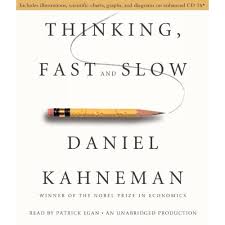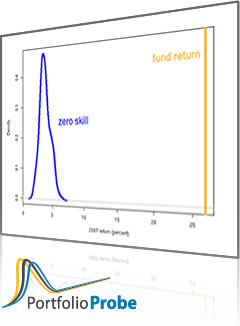I put off reading this book because I thought that I would already know most of its contents. I was wrong. Really wrong.
There is a review with a more statistical orientation on the Burns Statistics site. Here the focus is towards economics. The topics that most directly impinge on fund management are:
- prospect theory versus utility theory
- the illusion of skill
- risk-benefit illusions
- Econs versus Humans
Prospect theory
Utility theory says that people make decisions based on optimizing their utility. Nice theory; it makes sense. The problem is that it isn’t what people actually do.
Utility theory presumes a global optimization. We actually do a local optimization around some state (because we are lazy and have limited computational power).
The key things that prospect theory highlight are:
- we compare to a state of the world (often the status quo)
- in those comparisons losses are much worse than gains
- there are diminishing effects as either gains or losses increase
Maximum drawdown is horrifically poor from a statistical point of view. Prospect theory gives another reason to avoid it.
Maximum drawdown puts the focus on the highest value achieved. With this frame losses occur almost continuously. In contrast if the anchor is the value at a particular time (start of year, for example), then even a coin flip will tend to have losses only about half the time.
See the decision weights section of the Burns Statistics review for more on risk aversion and such.
Illusion of skill
We have a drive to create stories of our experience that minimize the role of chance. We are very biased towards attributing investment gains to our skill. Furthermore we are good at ignoring that illusion even if we understand it intellectually.
For practical fund management I think the counterbalance is to emphasize to yourself how much you don’t know and how random results are.
Risk-benefit
The risk-benefit illusion goes like this:
- if I decide I like something, then I think it has a lot of benefit and little risk
- if I decide I don’t like something, then I think it has little benefit and a lot of risk
We seem to be incapable of thinking that something has both a lot of benefit and a lot of risk.
The lesson, I think, is that doing risk-benefit analyses is a whole lot trickier than expected.
Econs
Econs are the hypothetical beings studied by traditional economics that are always rational, never change their desires, and know all the necessary information. There might be some questionable results when the human economy is modeled using the behavior of Econs.


Pingback: A statistical review of 'Thinking, Fast and Slow' by Daniel Kahneman - Burns Statistics
Hands down, one of the best books in its genre.
Thinking, Fast and Slow by Daniel Kahneman is a lengthy, self-conscious and a challenging read but highly recommended if you’re interested in why human beings behave the way they behave. It’s given me so much ‘oh snap, so that’s why we’re so dumb’ moments that at this point I don’t even want to admit I’m a human to any space-time traveling race that comes in collision of 21st century Earth.